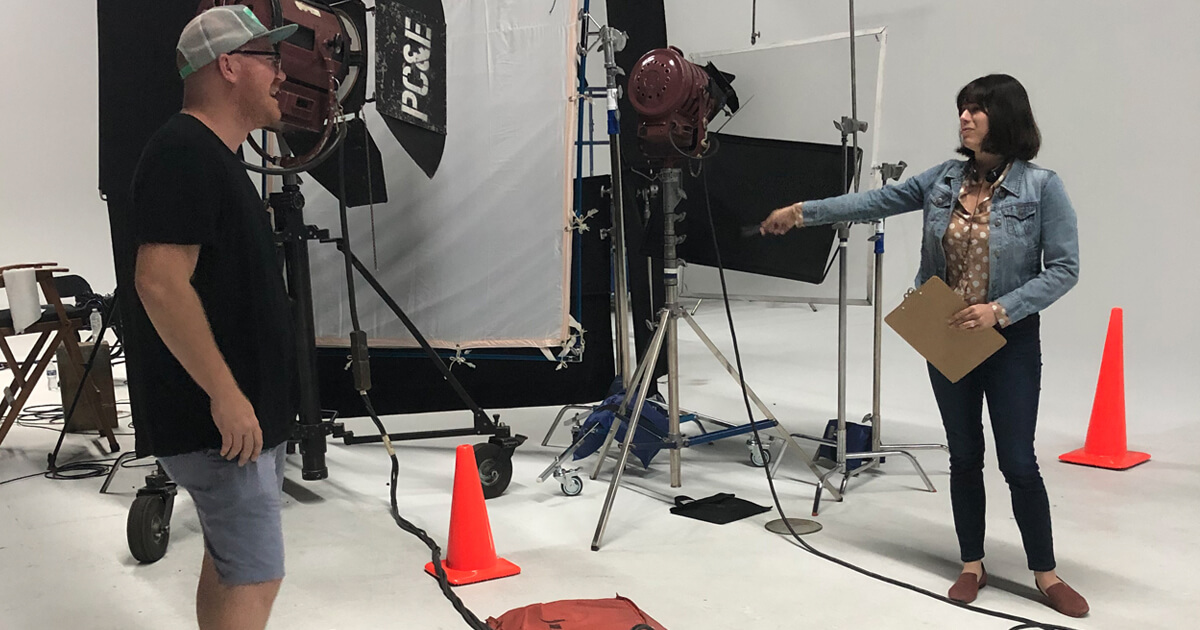How Event Production Works: A Comprehensive Check Out the Refine
Event production is a complex and structured process that requires careful preparation and implementation. It starts with developing clear objectives and comprehending the target audience. Each step, from budgeting to place option, plays an essential duty in making certain success. As the process unravels, numerous elements have to straighten effortlessly. The subtleties of this intricate procedure typically go unnoticed. What are the vital phases that contribute to a remarkable event?

The Initial Drawing Board
When beginning on event production, mindful preparation is important to assure an effective result. The preliminary drawing board functions as the structure for all subsequent efforts. During this stage, event manufacturers need to define the event's purpose and purposes plainly. Determining the target audience helps customize the experience and messaging, guaranteeing significance and engagement.Producers must additionally take into consideration the event style, whether it be in-person, virtual, or crossbreed, as this will certainly influence various logistical components. Choosing a suitable day and location is crucial, as it influences access and availability.Furthermore, setting up a trustworthy team is basic for splitting responsibilities and enhancing communication. Developing a timeline with milestones warranties all tasks are finished on time. This stage entails extensive research, consisting of determining possible difficulties and designing techniques to mitigate dangers. Inevitably, a well-structured initial preparation stage sets the tone for an effective event production journey.

Budgeting and Source Allocation
In event production, efficient budgeting and source allocation are vital for success - event production charlotte. Developing financial parameters sets the structure for all succeeding choices, while resource distribution techniques ensure that every part of the event is adequately supported. With each other, these components help keep control over expenses and optimize using offered resources
Developing Financial Parameters
Developing monetary criteria is essential to the success of any kind of event production, as it establishes the structure for effective budgeting and source allotment. This procedure begins with defining the general budget plan, which includes all aspects of the event, consisting of location expenses, wedding catering, and marketing. By identifying readily available funds, event organizers can focus on expenses and assign resources accordingly. On top of that, it is necessary to conduct comprehensive market research to prepare for possible expenses and determine funding resources, such as sponsorships or ticket sales. Developing clear monetary criteria likewise aids in threat administration, enabling planners to reserve contingency funds for unexpected expenditures. Eventually, a well-defined spending plan acts as a roadmap, guiding the event production group towards achieving their objectives while maintaining economic control.
Resource Circulation Methods
Efficient source circulation strategies are essential for taking full advantage of the impact of an occasion while adhering to budget plan constraints. Effective event production requires a careful approach to budgeting and source allocation. Organizers should focus on important components such as venue, food catering, and technology, making certain that funds are assigned to locations that enhance participant experience. A detailed budget plan should lay out expected costs and recognize areas for possible cost financial savings, such as bargaining with vendors or discovering sponsorship opportunities. Furthermore, tracking expenses throughout the planning process assists protect against overspending. By employing calculated source distribution, event producers can provide an unforgettable experience while keeping monetary responsibility, ultimately contributing to the general success of the event.
Venue Choice and Logistics
Selecting the appropriate place is important to the success of any event, as it sets the stage for the overall experience. Venue selection entails evaluating various factors, including capacity, accessibility, and location. Planners have to take into consideration the target market and the nature of the event, making certain the location lines up with the event's goals.Logistics play a considerable role in this procedure, entailing plans for seating, audiovisual equipment, and providing services. A well-chosen place needs to assist in smooth flow for attendees and team, improving engagement.Additionally, evaluating potential places for features like vehicle parking, washrooms, and fire escape is crucial for security and convenience. The timeline for safeguarding the venue is additionally important, as prominent locations might book promptly - event production charlotte. As a result, comprehensive preparation and timely implementation can eventually add to a seamless event experience, making venue selection and logistics basic elements of effective event production
Imaginative Principle Advancement
While the venue establishes the physical stage, imaginative principle growth shapes the event's identification and narrative. This procedure starts with identifying the event's purpose and target audience, enabling event producers visit their website to formulate an engaging theme that reverberates with guests. Conceptualizing sessions often consist of diverse perspectives, cultivating ingenious ideas that line up with the event's goals.Once a theme is developed, visual components such as color schemes, signage, and design are developed to boost the general ambience. Narration methods might additionally be integrated to produce an interesting journey for individuals, assuring a remarkable experience. Additionally, considerations concerning enjoyment, activities, and interactive elements are lined up with the selected idea, strengthening the theme throughout the event.Ultimately, effective creative concept development warranties that every facet of the event functions cohesively, leaving a lasting impression on guests and fulfilling the event's goals. This fundamental job prepares for subsequent planning and implementation phases.
Teaming up With Vendors and Providers
Successful event production rests on reliable partnership with vendors and suppliers. Picking dependable partners, negotiating agreements successfully, and guaranteeing timely distributions are important action in this procedure. Each of these aspects contributes greatly to the total success and smooth execution of an occasion.
Choosing Reliable Partners
Just how can event planners assure a smooth production experience? Selecting trusted companions is important in attaining this objective. Event planners need to conduct thorough research study to identify suppliers and suppliers with a tested performance history of excellence. This consists of inspecting referrals, evaluating profiles, and assessing consumer feedback. Organizers should focus on partners that demonstrate expertise, prompt interaction, and a determination to team up. Building solid relationships promotes count on and makes it possible for quick analytic during the event. In addition, it is useful to choose local vendors who understand the venue and local logistics. Ultimately, an effective event depends upon the harmony in between organizers and their partners, ensuring that every facet of production runs efficiently and efficiently.
Discussing Contracts Properly
Effective settlement of agreements is a vital step in the partnership between event coordinators and their vendors and distributors. This procedure includes clear interaction of assumptions, deliverables, and timelines. Planners should carry out complete research study on market prices and market standards to establish a baseline for arrangements. It is essential to create a collaborative atmosphere, urging open discussion concerning terms, prices, and potential contingencies. Organizers should likewise focus on recognizing the supplier's abilities and limitations to straighten their requirements successfully. Flexibility can lead to equally valuable contracts, fostering lasting partnerships. Crafting well-defined agreements that include specific efficiency metrics can help assure responsibility, ultimately bring about successful event implementation and contentment for all celebrations involved.
Making Certain Timely Distributions
Timely deliveries are necessary for the smooth execution of any kind of event, needing persistent cooperation between organizers and their vendors and suppliers. More about the author Efficient interaction is important, as it aids establish clear assumptions concerning distribution routines, amounts, and particular needs. Coordinators frequently develop comprehensive timelines to lay out vital milestones, making sure all events stay straightened throughout the procedure. Regular check-ins with vendors can assist recognize potential delays early, enabling proactive options. In addition, building strong connections with trusted suppliers fosters depend on and liability, which can result in better service and prioritization. By prioritizing these collective initiatives, organizers can decrease disruptions, thus enhancing the overall effectiveness of event production and making sure that all needed products and solutions get here as intended.
Marketing and Promotion Techniques
While arranging an event, the success of advertising and marketing and promo methods can considerably influence attendance and involvement. Reliable approaches often include a mix of electronic marketing, traditional advertising and marketing, and grassroots outreach. Making use of social networks platforms allows for real-time communication and targeted advertising and marketing, reaching particular demographics successfully. Email marketing projects can further involve potential participants with customized web content and reminders.Collaborations with influencers or industry leaders can likewise enhance credibility and expand reach. Creating engaging material, such as video clips or blog sites, aids to produce buzz and sustain rate of interest leading up to the event. Additionally, leveraging early-bird discounts and exclusive advantages can incentivize ticket purchases.Promoting through conventional networks, such as posters or neighborhood media, continues to be pertinent, specifically in community-focused events. A comprehensive technique that incorporates multiple approaches assurances maximum exposure and involvement, eventually adding to the event's success and the development of a memorable experience for participants.
On-Site Execution and Administration
On-site execution and management are important elements that determine the general success of an occasion. Reliable control during the event ensures that all aspects straighten with the prepared schedule. Event supervisors manage logistics, including supplier sychronisation, equipment configuration, and visitor services. Checking timelines and attending to any unexpected problems are essential for maintaining a smooth experience.The team plays a considerable function, as skilled workers are accountable for various tasks such as enrollment, info dissemination, and technical assistance. Interaction among group participants is important; it fosters a joint atmosphere and allows fast resolution of challenges.Additionally, safety and security protocols have to be complied with, securing the well-being of all participants. Post-event examinations are likewise component of on-site administration, offering understandings for future enhancements. By focusing on these facets, event producers can develop unforgettable experiences that meet or go beyond guest assumptions while accomplishing the event's objectives.
Often Asked Questions
Exactly how Do I Select the Right Event Style?
Selecting the right event motif involves taking into read the full info here consideration the target audience, event function, and venue. Investigating existing trends and collecting input from stakeholders can likewise motivate imaginative ideas that reverberate and develop a memorable experience.

What Are Usual Blunders in Event Production?
Typical mistakes in event production often consist of insufficient planning, inadequate communication amongst staff member, spending plan mismanagement, ignoring to take into account the target market's needs, and falling short to carry out a complete post-event assessment for future renovations.
Exactly How Can I Measure Event Success?
To determine event success, one can analyze participant complete satisfaction, involvement levels, spending plan adherence, and post-event comments. Trick performance indications, such as ticket sales and social media communications, also give important understandings right into general performance.
What Should I Do if It Rains on the Event Day?
In the event of moisten the day, the organizer ought to apply contingency strategies, such as securing camping tents or relocating activities indoors. Interaction with participants about modifications is crucial to guarantee a smooth experience in spite of weather condition obstacles.
How Can I Guarantee Participant Involvement During the Event?
